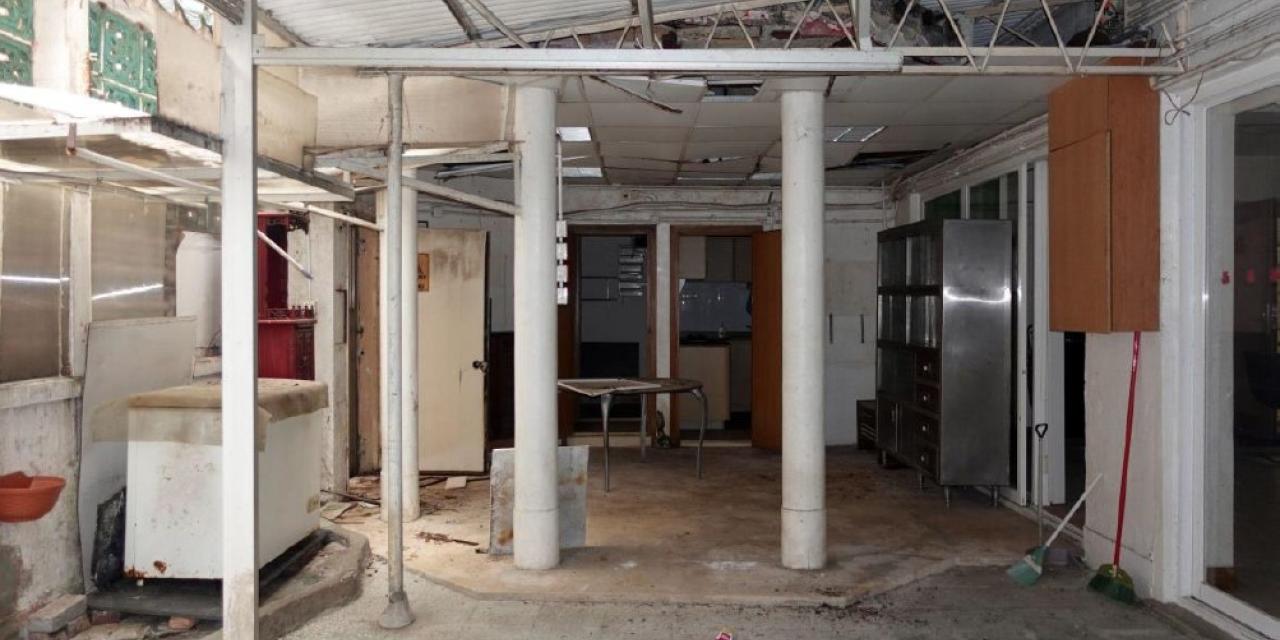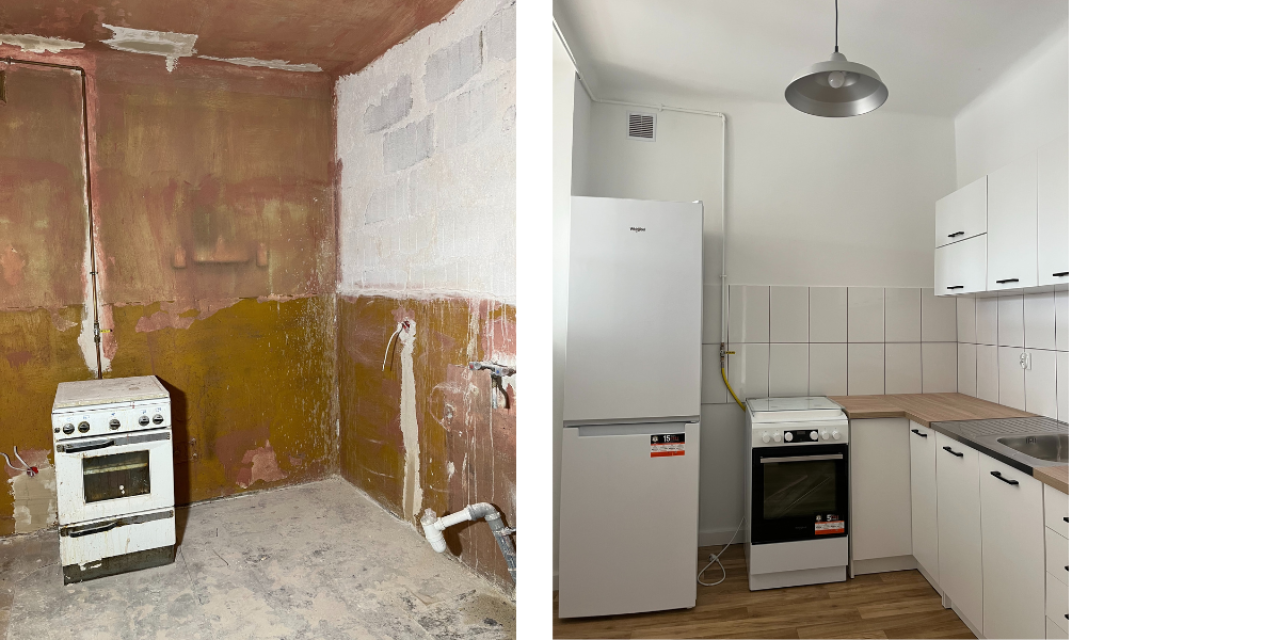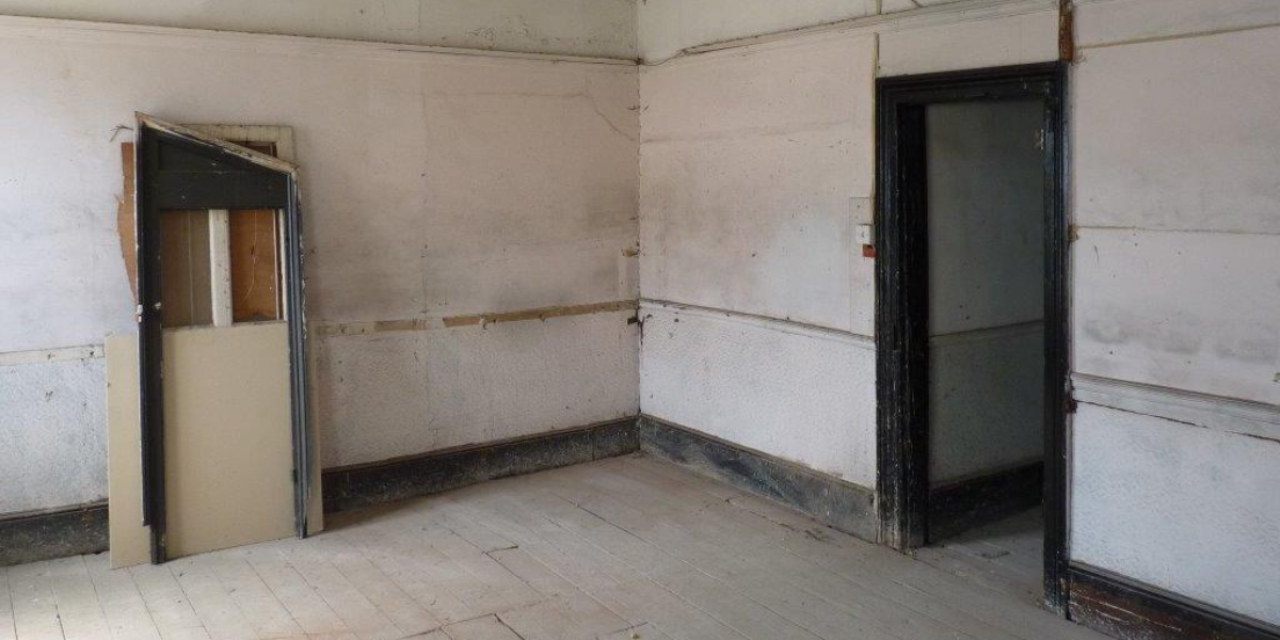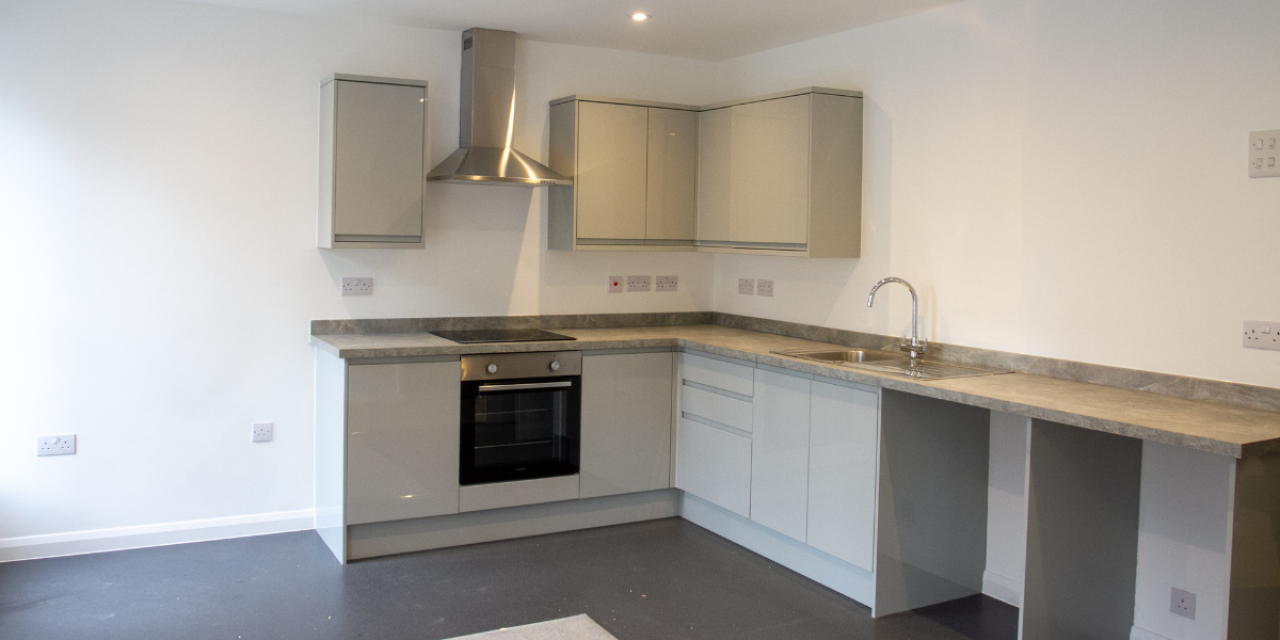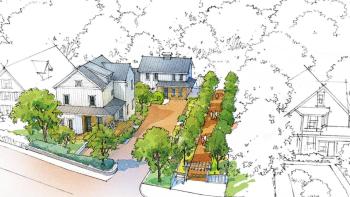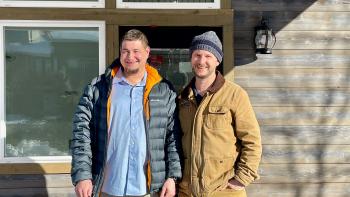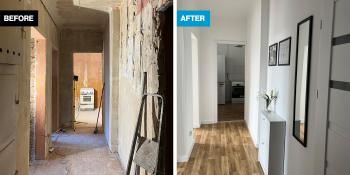
Converting underutilized spaces into adequate housing
Many cities around the world have a shortage of adequate housing and an abundance of underutilized buildings and empty apartments. Habitat uses innovative and scalable approaches to addressing the global housing crisis, like converting underutilized spaces into habitable places to call home.
Habitat-led pilot projects and research in Hong Kong, Poland and the United Kingdom have shown that reviving empty spaces can be a viable component to increasing the adequate housing stock, particularly in dense urban areas where limited land availability and high construction costs create barriers for development.
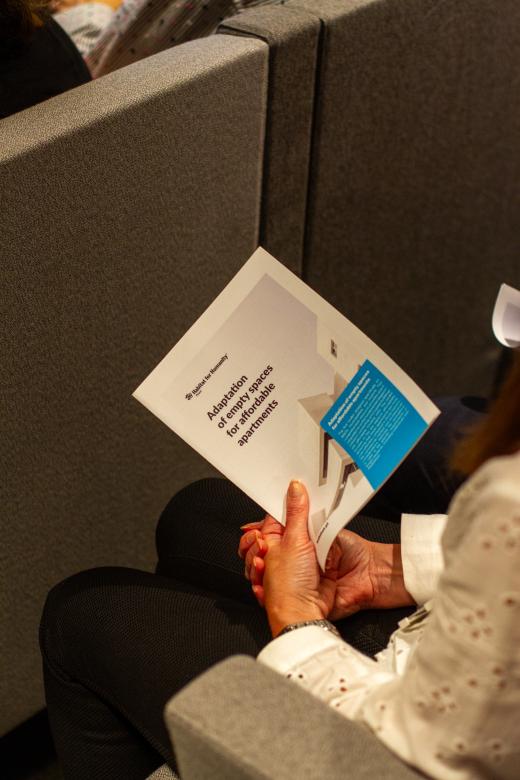
Habitat Great Britain released a toolkit sharing best practices for converting empty spaces into habitable residences.
-
- Habitat is working hyper-locally around the world to find ways to transform empty spaces into decent places to call home.
- Underutilized buildings and vacant apartments present an enormous opportunity to address the global housing shortage.
- Habitat’s conversions in Hong Kong, the United Kingdom and Poland have demonstrated the potential of reviving empty spaces.
Creating shelter and community space in Hong Kong
In Hong Kong, roughly 220,000 people live in subdivided flats — apartments split into dormitory-like units about the size of a parking space. More than 100,000 residents are in line for public housing, but the slow rate of construction means they can expect to wait an average of 5.5 years.
Habitat Hong Kong partnered with Juan Du, Ph.D., an architecture professor at the University of Hong Kong, to explore housing solutions to accommodate residents as they await public housing. Dr. Du’s research revealed that thousands of temporarily vacant buildings could be used to generate quality housing and community spaces in high-demand areas.
Through Habitat Hong Kong’s Housing in Place pilot project, they worked with developers in 2022 to convert four floors of a vacant building in the city’s Jordan neighborhood into an 8,000-square-foot community center and emergency shelter. Dozens of local nonprofits used the space to hold mental health workshops, provide free legal counseling and host food distribution days. Two of the floors in the converted space were used as a temporary shelter with private beds and other amenities.
Jo Hayes, Habitat Hong Kong CEO, says the center operated for six months and served as a prototype where the government and other stakeholders “could actually see this building conversion in action so that then they would scale that up.”
Reviving empty spaces in the U.K. and Poland
Many European countries face similar housing deficits. In the United Kingdom and Poland, Habitat’s efforts to convert underutilized spaces and renovate empty apartments have helped improve access to adequate housing.
In 2018, Habitat Great Britain and the council of Barking and Dagenham, a borough in east London, partnered to transform an unused storage unit into a four-bedroom apartment that accommodated three young people leaving foster care and a live-in care worker.
The success of the conversion inspired Habitat Great Britain to launch a three-year project in July 2020 to research empty spaces and demonstrate the feasibility of converting buildings into livable units. The project expanded its scope to include empty space conversions and research in Poland led by Habitat Poland.
The research in both countries revealed that local authorities own thousands of empty or underutilized properties.
While conducting research, Habitat Great Britain and Habitat Poland also adapted several empty spaces into flats. In Poland, renovating vacant apartments helped Habitat shelter more families fleeing the war in Ukraine. Mateusz Piegza, Habitat Poland’s program development manager, says they’ve renovated more than 20 flats in Warsaw and Silesia, the majority of which have been rented to refugees.
Scaling building conversions in Europe and across the world
Habitat Great Britain and Habitat Poland each released a toolkit sharing best practices for converting vacant spaces. Their hope is that governments and organizations across Europe will use the toolkits to scale the conversion of empty spaces.
Around the world, Habitat is reimagining affordable housing through our innovative programs. We don’t see a boarded-up building as a vacant space destined for demolition; we see it as an opportunity. By incorporating the repurposing of empty spaces into our scope of work, Habitat is able to help more families open doors to adequate housing.
